
Coey Redd
March 22, 2023



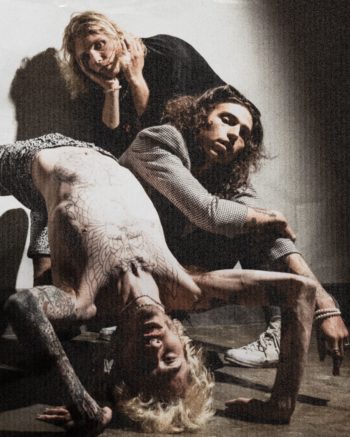
Beauty School Dropout (BSD) is a Los Angeles-based “Renegade-Pop” band that launched in 2020. The five-piece outfit began with vocalist, Cole Hutzler, drummer, Mike Rose, and bassist, Brent Burdett; all formally of alt-rock group Strangefaces. The evolution of BSD began with what was initially Hutzler’s solo project. As he teamed up with producers Diego Ruelas and Bardo to shape the sound, former bandmates Mike and Brent followed soon after to join the collaborative process. BSD is currently working with 3x Grammy-winning rock producer, Rob Cavallo on their debut EP.
Coining the term “Renegade-pop”, Beauty School Dropout is a seamless mixture of pop, rock, punk, and hip hop.
Comments Off on Beauty School Dropout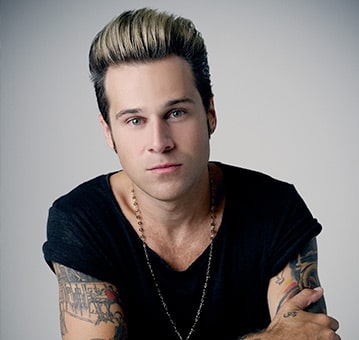
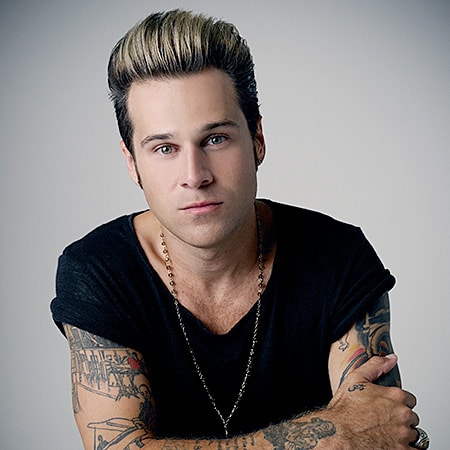
In 2009, he began writing songs for what would eventually become record number five. However, the inspiration didn’t quite click right off the bat. So, he continued cataloging his thoughts and emotions over the next few years. He immersed himself in other artistic pursuits such as painting—actually decking out his home with all original work enjoying his own personal renaissance.
He also spent meaningful time at hospitals around the country, brightening up the day for countless sick children and young adults. Inspired from this, CABRERA also took the opportunity to launch a live music series entitled Live From Ryan’s Living Room. Utilizing VYRT, he broadcasts live performances from his living room and all proceeds for “online tickets” benefit different charities. Everybody from Colbie Caillat and Gavin DeGraw to Billy Ray Cyrus and We The Kings has joined him in the Living Room for unique live jams.
Amidst this creative upswing, 2013 ushered in something of a new awakening for CABRERA. After penning “I See Love” in Nashville with Nathan Chapman [Taylor Swift], he experienced a revelation. “That sparked the mindset of the new album,” he affirms. “It was about writing songs that are real and honest. It was, ‘Write what you love and are passionate about.’ That ignited the entire record.”
He went back to Los Angeles reinvigorated and locked himself in the studio with producer Justin Gray [Mariah Carey, John Legend, Amy Winehouse]. Together, the duo wrote and performed the bulk of the album, playing all of the instruments themselves. “It’s organic pop music,” CABRERA declares. “Justin and I hit it off immediately. We were in a room together, jamming on everything. We weren’t trying to be anything or fit any kind of mold. It was just music we dug. I started writing all of these fun, positive, and uplifting songs. My whole perception had changed. Every song tells its own story.”
The first single released, “House On Fire,” shimmies from a percussive tribal intro into an incendiary refrain. He smiles, “It’s about burning everything down and being crazy while you can. You’re living in the moment and enjoying everything you do. A lot of people are afraid to let themselves go, be passionate, and express their feelings. You’ve got to burn it all down—even if just for one night. Let loose and go nutty! It feels great.” Fans and media have raved about House On Fire;” People Magazine wrote “Cabrera delivers his catchiest hooks” since “On The Way Down” and Perez Hilton proclaimed it “the best song Cabrera has ever released.” “House on Fire” was also a #1 Billboard Dance Chart song and regular on numerous Spotify playlists during the summer of 2015.
At the same time, CABRERA still knows how to write a touching love song. “All We Have” captures a distinct moment that’s both heartbreaking and hypnotic. “That’s one of the love songs,” he sighs. “It’s about that relationship that got away. Maybe you made a mistake. Now, you’re making your plea about why you should be together. You admit you’re wrong, but you still want to be together.”
Ultimately, this is the real RYAN CABRERA. He doesn’t hold anything back, and he’s created his most uplifting and powerful music to date.
“I want the music to speak for itself,” he leaves off. “My career has been about a lot of things from the outside. The focus unfortunately shifted to what my hair was like or who I was dating. That’s not why I started playing music. It’s always been about the music. That’s it. It’s not about being a pop singer. It’s about being an artist. I want people to think of the songs before they think of me. It starts now. This is going to be a fun ride.”
CABRERA’s full-length will be released later this year.
Management:
Nick Lippman
Lippman Entertainment
Publicity:
Alaina Bendi
Promenade Music Entertainment
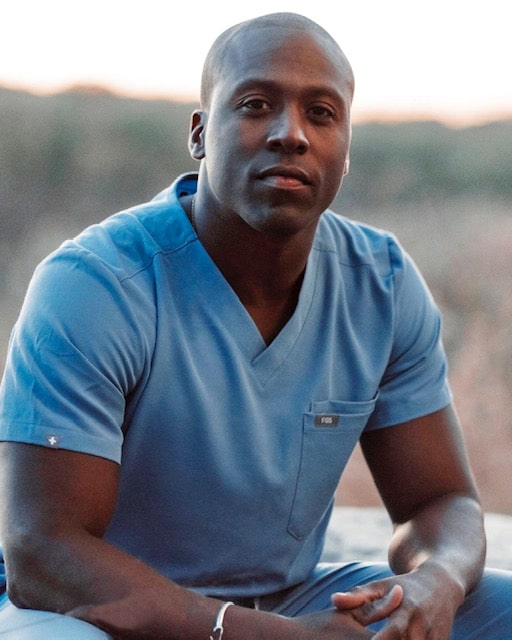
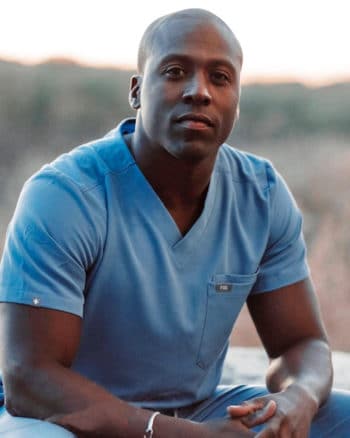
Beyond his practice as an orthopedic surgeon, he has a unique passion for sharing his voice via uplifting music both in and outside of the hospital. Clinically, he has published many peer-reviewed scientific publications and lectured at national and international conferences on a variety of medical topics.
In 2018, he gained national attention for an impromptu rendition of “Alright” performed after a trauma call shift, and again after a cover of “IMAGINE” promoting hope during Covid-19.
Since that time, Dr. Elvis has been featured on The Ellen Show, Forbes, Rolling Stone, Good Morning America, Today, and The View, among countless other mainstream media appearances. Dr. Elvisalso starred on the Smash Fox TV Show, The Masked Singer, and was praised repeatedly by another doctor, Dr. Ken Jeong. He was also named to People Magazine’s sexiest men alive 2020.
Furthermore, Dr. Elvis has performed live at the Indianapolis 500, Monday Night Football, The Presidential Inauguration, and more.
His music covers have amassed well over 10 million views on Facebook and Instagram, and in 2020 he produced an album of song covers that peaked at No. 2 on the iTunes charts and was in the Top 20 on the Billboard charts.
In another example of the size of his heart, 100% of the proceeds from his album were donated directly to a COVID-19 relief charity.
Dr. Elvis is also a speaker at numerous national conferences where he interacts with people seamlessly to motivate, inspire, entertain and uplift audiences across the world. During the Covid crisis, Dr. Elvis is making the best use of his time, not only performing much-needed surgeries but also in the studio working on original music with some of the music industry heavyweights.
Comments Off on Dr. Elvis Francois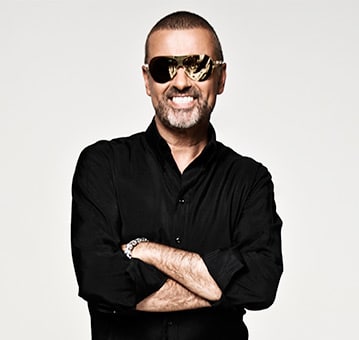
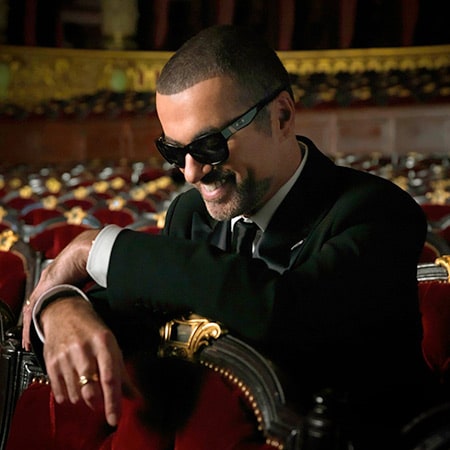
George Michael has never thought of popular music as a career: it’s far more personal – more precious – than that. But he has always taken the long-term view, that ultimately an artist’s achievement will not be judged in terms of number one singles, or magazine covers, or prestigious awards, but by a large body of work, a collection of albums over time, a lifetime’s development in an artform that no longer depends on shock or rebellion or the quick burn-out to make a mark.
In 21 years, and at 41 years of age, George Michael can already look back on more than 85 million record sales worldwide. He’s notched up six US No.1 singles (from his solo debut album); eleven British No.1 singles and seven No.1 albums to date. He has also played at some of the biggest and most important concerts in history (Live Aid, the Nelson Mandela Freedom Concert, the Freddie Mercury Tribute, NetAid), all in front of capacity audiences at Wembley Stadium and in front of many millions watching throughout the world.
George Michael was born Georgios Kyriacos Panayiotou on 25 June 1963 in North London, and went on to meet his future Wham! partner Andrew Ridgeley at a nearby comprehensive school. They formed their first band, The Executive, in 1981, but soon realised their chosen path lay as a duo: Wham! was born. Within a year they had released their classic debut single, ‘Wham Rap’, but it was their second single, ‘Young Guns (Go For It!)’ which became the first in a string of Top 10 hits.
In the summer of 1984 George unveiled a glimpse of what was to come by releasing the classic ‘Careless Whisper’. His first solo single while still with Wham! became one of the signatures of the Eighties and one of the most-played radio songs of the decade. It was written when he was still only 17.
His growing maturity was further established with the release of ‘A Different Corner’, his second solo single, and another mature ballad of lasting worth. A few months later George and Andrew decided that Wham! should disband while still at the very peak of their success. This announcement was followed by a unique final concert at Wembley, an emotional farewell in front of 72,000. Their place was assured as one of the most exuberant pop bands of the Eighties. Equally certain was that George was set for a remarkable solo career.
In 1987 George became the first white male vocalist ever to duet with soul great Aretha Franklin. The resulting recording, ‘I Knew You Were Waiting’, shot straight to the top of the charts worldwide, starting off a year which saw George jetting between London and Denmark, recording tracks for his outstanding debut album ‘Faith’.
The album, released in November 1987, showed George Michael to be one of the finest songwriters of the decade and guaranteed him a whole new audience. The album was a No.1 on both sides of the Atlantic, with worldwide sales approaching 15 million. ‘Faith’ received a Grammy for the Best Album of 1988, and won George two Ivor Novello Awards for Songwriter Of The Year and International Hit Of The Year (‘Faith’). George also won American Music Awards for Favourite Male Vocalist (pop/rock), Favourite Male Artist (soul/R&B) and Favourite Album (soul/R&B).
In America, the outstanding success of ‘Faith’ was marked by six No.1 singles: ‘I Want Your Sex’, ‘Faith’, ‘Father Figure’, ‘One More Try’, ‘Monkey’ and ‘Kissing A Fool’.
The live ‘Faith’ tour followed in February 1988, taking the hits package to a momentous opening date at Tokyo’s Budokan Stadium, and then on to ecstatic audiences in Australia, Europe and North America. In June, George interrupted the tour to sing three songs at Wembley Stadium’s Nelson Mandela Freedom Concert.
By September 1990 George had gathered together a new body of work – ‘Listen Without Prejudice: Vol.1′ – and another new direction was visible from the first single, ‘Praying For Time’. Much of the album had a raw, stripped-down feel, and drew heavily from classic Sixties tracks, black rhythm and jazz moods. Mostly they were personal, increasingly philosophical songs; once again they went against the prevailing chart trends.
His videos created new waves too: it was almost unheard of for an artist of his stature not to appear centre-stage, but for ‘Freedom 90′ he found other stars – Cindy Crawford, Naomi Campbell, Christy Turlington and Linda Evangelista. This was the first time these supermodels had been seen together away from the catwalks, and it was an attraction no one found able to resist thereafter.
The album was another British No.1, and also spawned the hit singles ‘Waiting For That Day’, ‘Heal The Pain’ and ‘Cowboys and Angels’. Still in his Twenties, Michael was already being classed alongside those artists he admired most, and with whom he had the honour of dueting: Aretha Franklin, Elton John and Stevie Wonder. He brought out an autobiography to coincide with the new album (‘Bare’, co-written with Tony Parsons), and was granted a UK television special, an ultimate cultural sign of arrival.
In November 1991 George released ‘Don’t Let The Sun Go Down On Me’, a duet with Elton John from one of George’s Wembley concerts. The song was another No.1 worldwide, and all proceeds went to the AIDS hospice London Lighthouse and the Rainbow Trust Children’s Charity. A few months later George was in the charts once more with ‘Too Funky’, a single from the ‘Red Hot and Dance’ AIDS charity album, which included a collection of remixed hits by artists such as Madonna and Seal as well as three brand new George Michael songs – the only new songs on the album.
‘Too Funky’ went on to become Europe’s most played record of 1992, helped partly by the video directed by George and styled by designer Thierry Mugler.
Early in 1993 George spent three weeks at the top of the charts with the ‘Five Live EP’, featuring duets with Queen and Lisa Stansfield on tracks from the 1992 Freddie Mercury Tribute Concert and from his own Cover To Cover tour in 1991. All proceeds went to the Freddie Mercury Phoenix Trust.
In October of the same year, in a bold statement, making headlines worldwide, George appeared in court against his record company Sony Music Entertainment, as he attempted to break free from the company he claimed no longer accepted his musical direction. Nine months later, the judge found in favour of the record company. An appeal was issued, and was due to be heard in 1996.
On 1st December 1993, World AIDS Day, George played a benefit concert in front of the late Diana, Princess Of Wales. This ‘Concert Of Hope’ also featured kd lang and Mick Hucknall and was televised worldwide, doing much to raise funds and awareness of the disease. Towards the end of 1994 Michael performed a new song on the first MTV European Music Awards, in the shadow of the Brandenburg Gate in Berlin. ‘Jesus To A Child’ was the first new George Michael song the huge television audience had heard for almost three years, and the acclaim was universal.
Undeterred by the fact that he still wasn’t able to release any new material, ‘Careless Whisper’ was voted Londoner’s favourite record of all time in January 1995 in a competition run jointly by the capital’s leading evening newspaper and radio station. He was then voted Best Male Singer by the same radio station, and by the readers of a national newspaper. In April 1996, George won the Capital Radio award for ‘Best Male Singer’ once more and was also honoured with an ‘Outstanding Contribution To Music’ award.
By July 1995, after many months of negotiations, it was agreed that Michael would leave Sony and sign two new deals, one with Virgin Records for the World excluding the United States and the other with Steven Spielberg, David Geffen and Jeffrey Katzenberg’s newly formed SKG Music in North America.
George’s first album for Virgin Records, ‘Older’, was released on 13 May 1996 and thus far the global sales have been outstanding. The album has already earned multi-platinum and/or gold status in 34 countries, including 5 x platinum in the UK.
Written, arranged and produced by George Michael, ‘Older’ was recorded in London and features 11 brand new tracks including the huge international hits, ‘Jesus To A Child’, ‘Fastlove’ and ‘Spinning The Wheel’, the double A-side “Older”/ “I Can’t Make You Love Me” and “Star People ‘97″.
The video for ‘Fastlove’ was also the top choice of MTV Europe viewers in September 1996, as it picked up the ‘MTV Europe International Viewers Choice Award’ at the MTV Video Music Awards in New York.
At the beginning of October 1996, George performed his first live shows for five years with a gig for Radio 1FM followed by an Unplugged Session for MTV. Although these concerts were attended by the smallest audiences George has ever played to, he claims they were nevertheless two of the most enjoyable, due to the intimacy of the occasion. The Radio 1FM audience consisted of just 200 people and the MTV Unplugged session slightly larger at 500. Both audiences included competition winners, some of whom had flown to London from all over the world, as well as various specially invited guests. At both these events, George performed a stunning set which included the tracks ‘Father Figure’, ‘One More Try’, ‘Waiting For That Day’, ‘Freedom’, ‘Fastlove’ and ‘Older’, closing with the uptempo ‘Star People’ which had the audience up on their feet begging for more.
In 1996, George was voted “Best British Male”, at the MTV Europe Awards and the BRITs; and at The Ivor Novello Awards, he was awarded the prestigious title of “Songwriter of The Year” for the third time.
On 8th September, George released a 4 track E.P. entitled “You Have Been Loved” which debuted at number 2 making him the first artist in chart history to have 6 top 3 singles from one album.
On 24th November 1997, his former record label Epic released “If You Were There” – the long-awaited collection of Wham’s Greatest Hits and on 1st December Virgin Records released a limited edition version of George’s “Older” album which contained a bonus disc of 6 remixed tracks entitled “Upper”. The “Upper” CD is exclusive in that it includes interactive elements, allowing fans access to George’s web site, videos and fan club through the internet.In 1998 “Ladies and Gentlemen: The Best of George Michael” was released on Epic Records as agreed in the Sony settlement in 1995. The album soared to the top of the charts in the week of its release, 9th November, and remained at Number 1 for eight weeks, selling over 2 million copies, during the notoriously competitive Christmas period. The album features songs from every era of Michael’s career from “Careless Whisper” to the three brilliant brand new tracks. “Outside” was released on 19th October 1998 with an accompanying video that had George Michael’s controversial stamp very clearly on it.
The end of 1998 brought George Michael more accolades. “Ladies and Gentlemen…” achieved eight times platinum in the UK and also reached number one on the combined European Album Chart. Michael also topped the polls of the 95.8 Capital FM Hall of Fame for a record eighth time. On 5th December 1998 a 1 hour Parkinson special was screened on BBC 1 to universal critical and public acclaim.
On 8th March 1999, George Michael released “As” a duet with R&B Diva Mary J Blige, written and originally released by Stevie Wonder on his “Songs in the Key Of Life” album.
Early October saw George Michael back on stage. He gave a rare live performance at Wembley Stadium for the NetAid benefit concert. For many this was the highlight of the evening as a full gospel choir and 20 dancers joined Michael for songs including “Father Figure” and a moving rendition of “Brother Can You Spare a Dime”. The set opened with the recreation of the “Fastlove” video as Michael appeared seated in the famous black leather chair with in-built speakers and closed with the 70,000 strong Wembley Stadium audience singing backing vocals for “Freedom 90″.
At the close of 1999 George Michael released his fourth solo album, Songs From The Last Century, which features tracks written by some of the greatest composers of the last 100 years. This retrospective collection includes Michael’s version of “My Baby Just Cares For Me”, “Roxanne”, “Secret Love”, “Where or When”, “Miss Sarajevo” and “Brother Can You Spare A Dime”. Each of the 11 tracks were co-produced by the legendary Phil Ramone and George Michael.
As a result of pre-orders in excess of 750,000 in the UK the album achieved double platinum status on the day of release, 6th December 1999. Songs From The Last Century went on to be one of the biggest selling albums of the Christmas period throughout Europe, and despite having no singles released from it, remained in the album charts throughout the start of the 21st Century. During the first half of the year 2000, George Michael gave two live performances at international Charity benefit concerts. Equality Rocks took place in the USA and Modena, Italy was the venue for the Pavarotti and Friends Concert 2000.
June 2000 saw the release of the duet “If I Told You That” with Whitney Houston. Released on Arista records, it was a massive hit, spending many weeks at Number One on the combined European Airplay Chart. The single is taken from Houston’s Greatest Hits album.
Towards the end of 2001, George Michael signed an unprecedented deal with Universal Music. The single “Freeek!” was released on Polydor Records on 18th March 2002. The track, Michael’s first self penned single in three years, was accompanied by a video that pushed the boundaries in every sense. Directed by the famed Joseph Kahn, the post-production effects were added by some of Hollywood’s leading experts. The result perfectly complimented the song and was a visual masterpiece, having more in common with a feature film than a promotional music video. “Freeek!” was granted it’s own TV World Premiere on Channel 4 in the UK and was then premiered on primetime television in other countries around the World.
“Freeek!”, the first single from George’s new album, was an International hit, charting at number one in six countries and entering in the Top Ten of a further eight european countries alone.
At the end of July, George followed “Freeek!” with the satirical single “Shoot the Dog”. This was accompanied by a video animated by the team behind the popular TV show 2DTV.
Late in 2003 George Michael resigned to Sony Music and in 2004, he released the uplifting single “Amazing,” which was a top five hit in the UK and throughout the world.
“Patience,” George’s first album of original material for eight years, jetted straight in at number one in the UK breaking George’s own personal record for first week sales. “Patience,” has continued to hit the No.1 spot around the globe from Germany to Hong Kong and was released in the USA in May 2004. During recording and promotion of the album “Patience” George also made his documentary “A Different Story” which was screened at the Berlin Film Festival February 2005.
Comments Off on George Michael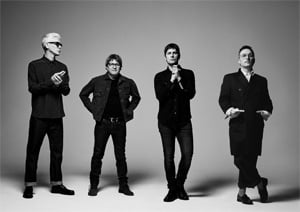

Matchbox Twenty have quietly woven their songs into the very fabric of American popular culture. No matter where you are, it’s impossible not to hum along (or even sing aloud) to generational anthems like “3AM,” “Push,” “Unwell,” “Bent,” “If You’re Gone,” or “She’s So Mean.” Earning hits in each of the last three decades, they’ve gone from perennially dominating radio airwaves and ruling MTV to piling up streams in the billions, speaking to the enduring appeal of their music. As such, they’ve sold over 40 million records worldwide, dominated charts, garnered multiple GRAMMY® Award nominations, and played to millions of fans in arenas, amphitheaters, and stadiums across continents. Their catalog encompasses the diamond-certified 12x-platinum classic Yourself or Someone Like You [1996], quadruple-platinum Mad Season [2000], double-platinum More Than You Think You Are [2002], and gold-certified North [2012], which marked their first #1 on the Billboard 200. Beyond dozens of syncs on film and television, their music has been either covered, interpolated, or sampled by everyone from Steve Aoki and Kiiara to RMR, while Billboard cited Matchbox Twenty as “one of the most consistent groups of the alternative boom of the 90’s back half.” For their first album in 11 years and fifth overall LP Where The Light Goes [Atlantic Records], the band— Rob Thomas, Brian Yale, Paul Doucette, and Kyle Cook —simply did what they do best and wrote another great batch of real, relevant, and relatable songs.
“We’re a band that makes songs about relationships, life, and how people deal with people,” notes Paul. “These songs are about everything from the acceptance of aging and recapturing youth to positivity, love, and hope.”
“When we get back together, we’re all much more secure and, yeah, a little older,” smiles Rob. “We’re
not worried about fitting into a box.”
This album benefitted from the musicians’ respective solo journeys. Rob Thomas has proven one of the
most highly decorated artists of recent years – releasing five solo albums and receiving three GRAMMY
Awards, 11 BMI Awards, the first-ever Songwriters Hall of Fame Hal David Starlight Award, two Billboard “Songwriter of the Year” honors, and top 5 placement on Billboard’s Top 20 Hot 100 Songwriters (2000-2011). Meanwhile, Paul Doucette has scored and contributed original music to film and television series such as Utopia, For All Mankind, and more. As the Global Pandemic scrapped the group’s 2020 tour plans, they wrote and shared ideas from their respective home studios. At the end of 2021, they finally
congregated as a band with GRAMMY® Award-nominated producer Gregg Wattenberg [Train, John Legend, Goo Goo Dolls].
“We were all doing so many things, and it was easy to bring these elements into Matchbox Twenty,” Rob goes on. “It’s nice because we go off and learn these fresh perspectives and transfer them to the band.”
“Then, we have all of these different ways of looking at music and abilities to now bring to the fold,” agrees Paul. “It’s almost like we’re a new band every single time.”
“This album was definitely informed by what was happening in our individual studios,” adds Kyle. “There was a little more freedom. An idea would be shared by one of us, and somebody else would take it another direction. We’ve never worked this way before. We explored our own creativity and used it to make an album that really embodies what we love about music.”
This energy surges through the upbeat first single “Wild Dogs (Running In A Slow Dream).” On the track, a propulsive rhythm, iridescent keys, and lush guitar charge towards the luminous refrain, “In a world of people, there’s only you and me—the wild dogs running in a slow dream.”
“It was the last song we wrote, and it had a freshness and vitality,” Rob reveals. “There’s a bit of an eighties vibe too. I grew up in the South as a weird little kid who didn’t know anything about sports or cars. When you find other weird little kids, it changes the game for you. To me, those childhood friends were the ‘Wild Dogs’ outside of my window at two in the morning. They were knocking and saying, ‘C’mon, let’s go!’ You finally find your missing piece, and you don’t feel alone.”
“It sounds like who we are now,” Paul goes on. “We were in our early twenties when we made Yourself or Someone Like You. Our lives are drastically different today, and you can hear it in the songs.”
“One of the best things about this job is how fortunate and lucky we are to still be here,” Rob leaves off. “These songs have been a part of people’s lives. They’ve been in weddings, they’ve become tattoos, and they’re the soundtrack to Saturday nights and Sunday mornings. My only real hope is for more people to let this album be part of their lives. To me, it’s the greatest compliment.”
“Honestly, when we play 3am on a Tuesday night in the Midwest at some outdoor amphitheater, it has its own meaning,” grins Kyle. “For as much as we’re playing the same set of chords, it connects to people in another way. I’m always taken aback by what this music means to the fans. I’m looking forward to it now more than ever though.”
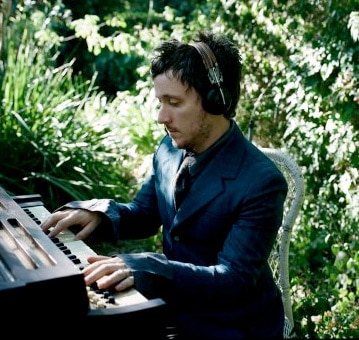
“The Break and Repair Method Paul Doucette’s (Matchbox Twenty) solo debut is steeped in the irony of the records name, milk the bee, set to hit via bluhammock music on September 16th. “When I first came up with the title, it was from a place of pure frustration. It seemed a futile thing to do – you make a record – and really – what’s the point? It’s like milking a bee,” Doucette explains. It’s not surprising Doucette was compelled to christen the product of his efforts with a title that implies such pointlessness. After years as the drummer of the wildly successful band Matchbox Twenty, Doucette took advantage of a temporary break to record songs he’d been working on. “When I first made the record, I had been in a band for so long, and I was always a drummer. I never really contributed much melodically, so it was important to me to do as much of that as I could,” says Doucette. With a deal secured, he prepared to record his debut, but soon found himself without a label due to major industry shake-ups. After several false starts and broken promises, Doucette found himself with a completed album of brilliantly catchy, emotionally laden songs, and no label. “It got to the point where I couldn’t move on to the next thing,” says Doucette. And luckily, he didn’t.
The Break and Repair Method is Doucette, a moniker he has chosen to best represent himself and his brilliant solo debut laced with catchy pop melodies that scale emotional depths in single songs. Written predominantly on the piano, Doucette pull influences from Harry Nillson to Neil Finn. Recorded around Los Angeles, Doucette relied on both friends and strangers to record the record. “There were two teams, basically,” Doucette says of the recording process. ” did the recording in different sections.” Matchbox multi-instrumentalist Matt Beck helped out, as did Doucette’s wife Moon Unit Zappa and Veruca Salt co-founder Nina Gordon. Other collaborators included David Levita (Alanis Morrisette), Roger Manning (Jellyfish, Beck) and Rusty Anderson (Paul McCartney).
Named for the exercise routine of a songwriter friend, the Break and Repair Method aptly describes the fluidity of personnel, as well as Doucette’s songwriting. “Something about the name really rung true with a lot of the way I write. One song will be really lyrically dark, and then the next song is the complete opposite. I have a tendency to do that. So it fit my style of writing,” says Doucette of his choice of name. The choice also aligns with the arch of milk the bee. With songs ranging from the birth of his daughter (Now We Become Part Of) to the album’s closer, inspired by a photo of an elderly couple (The Most Somebody Can Know), Doucette bookends milk the bee with the two seminal human experiences, and explores the remainder in between. The album’s opener -This City (Is Bound To Do Us In)is a pop-rock Trojan horse a catchy hook wrapped around an indictment of the lack of social culpability, triggered by the United States involvement in Iraq. “I started with the line in the middle of the song ‘We’re so in love with ourselves, we’ll show up with our tanks, pick up our feet and settle down,’” Doucette says. One of the albums only love songs, ‘You Won’t Be Able To Be Sad,’ is the sunniest song about not getting what you want written in recent history. “It can almost be considered a concept record,” says Doucette.
Having created an album with a history as storied as its contents, Doucette has since realized that milking the bee is not the exercise in futility he once thought. “People actually do milk bees,” Doucette laughs. “I didn’t know that.” He’s since revised his assessment of the album being a pointless exercise. From conception to release, Doucette has relearned the invaluable lesson he imparts in many of his songs. “Life is always like that. You get broken, and then you pick yourself up and do it again. You move on, and eventually you fix it.”
Comments Off on Repair Method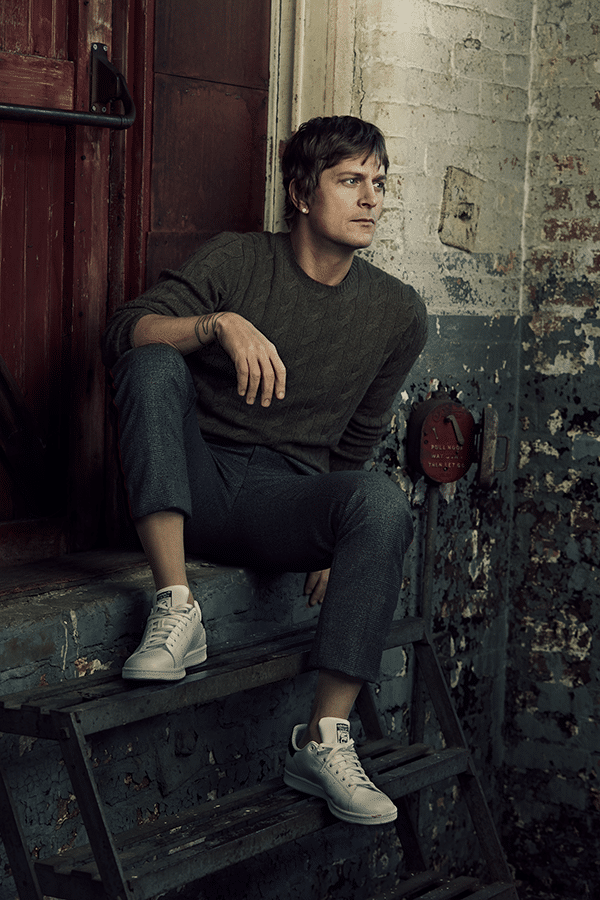

Given Rob Thomas’s stature as one of modern music’s most compelling and commercially successful artists for well over a decade – between Matchbox Twenty, his solo work, and his various collaborations with iconic artists like Santana and Mick Jagger, his tally now stands at more than 80 million albums sold worldwide – it’s easy to let the charts and numbers overshadow the essential reason he’s come so far in the first place. As he says with typical understatement, “I’m a guy who hears songs in his head, and I have to write them down, and I have to get them out. I’m just lucky enough that I can make it my life’s work.” Arguably the most accomplished singer/songwriter of his generation, for Rob it all comes back to the creative source. “I have to separate the idea of what I do for a living versus what I do. Songwriting is the only thing that makes sense to me. Years of doing it helps, but the truth is that the reason you do it for years is because it’s what you do. It’s the only thing that I have that kind of shorthand on… I don’t know cars, I don’t know sports, and I’m not a math whiz. This is something that I look at and it just makes sense to me.” Making sense of his musical inspiration is what Rob Thomas does at an exceptionally high level. “It’s a two-part process – there’s inspiration and craft. The inspiration is the part that’s completely magical and you have no responsibility over. The inspiration is when you’re sitting in your car or in a room and you hear a melody. You love it, it sounds great, and then you realize that it doesn’t exist yet in the world, that it’s a melody you just came up with. That’s a process that you can’t be responsible for. The minute you start to claim ownership of it, you lose it. To paraphrase a quote from Quincy Jones, Ôthe moment that success leads you to say, “I’ll take it from here, God,” that’s when God walks out of the room.’”
And as for the craft? “You have those moments when you are in full service of the feeling and you carry it as far as it takes you. And when that feeling stops, you put it away and at some point you have to go back and work on it. You say, ÔOK, this is where the inspiration took me, now what was it I was trying to say, where was it I was going? It’s this unbelievable process that when you’re done with it, every time you do it, for a second you feel like the most unbelievably creative person in the world, and then it goes away and you feel like you’re never going to do it again… and you have to start all over again. So you keep trying to get that feel, that high off of creating, that place that carries you from a blank page where nothing existed to a song that people are singing back to you at Madison Square Garden, if you’re lucky. That’s where the magic is.” Which brings us to the latest magical collection of Thomas-crafted inspiration – his second solo album, cradlesong. It follows his 2005 multi-platinum solo debut, “…SOMETHING TO BE,” which made history as the first album by a male artist from a rock or pop group to debut at No. 1 on The Billboard 200 since the chart was launched 50 years earlier. The album earned a pair of Grammy nominations and spawned a string of hit singles, including the smash “Lonely No More” – which was #1 in 15 countries, “This Is How A Heart Breaks,” “Ever The Same,” and “Streetcorner Symphony.” Cradlesong, with Matt Serletic again in the producer’s chair, was forged in a creatively charged atmosphere. “I built a studio in my basement, so a lot of these songs started with a drum beat,” Thomas says. “Up until this point in my life, everything had been written on acoustic guitar or piano, and I’d have to wait until I got into the studio and hear musicians get on it. Now I could have a good drum groove, get some guitars going, and then from that, Matt could hear it closer to how I was hearing the song.”
“I like musical hybrids,” says Thomas about the direction of cradlesong. “Like, ‘What would it sound like if we took Prince’s drummer and mixed him with really amazing Nashville players?’ I like to take everyone just left of their comfort zone and record it.” One early point of reference was Paul Simon’s seminal “RHYTHM OF THE SAINTS.” “I wanted to find a new way to do something that felt like it had an urgency to the groove.” The result is a percussive rock record that pulses with passion and energy. Vibrant guitars collide on songs such as “Fire on the Mountain” and the power pop gem “Give Me The Meltdown,” horns bolster the bouncy “Wonderful,” while electronic programming propels the dynamic “Real World ’09.” The title track is the sole ballad on an otherwise up-tempo set. “‘Cradlesong’ is in there because it’s really a mellow tune,” says Thomas. “It’s kind of a Ôcalm down, everything is going to be all right’ song.”
The album’s first single, the kaleidoscopic “Her Diamonds,” is the most personal song Thomas has yet committed to disc. Rob’s wife Marisol is courageously battling an autoimmune disease, and “Her Diamonds” was written “about a couple dealing with that on a day-to-day basis,” explains Thomas. “There’s an incredible amount of sadness that comes with something like that. There are moments where I think I flirted with a thinner personal line than I’ve ever done before, but, really, I’m writing a song about how people deal with hard times, and that hard time is universal, that hard time can be anything.” That gift of turning the personal into the universal has long been a hallmark of Rob’s work. “If I can take a specific moment in my life and write about how that moment makes me feel – not about the moment, but the way the moment makes me feel, all of a sudden I’m in a territory where a lot of people can understand that. A lot of people understand that feeling; they have other things in their life that make them feel that way. If I write ‘3am’ about my mother dealing with cancer, that’s a very specific moment, but if I write about how that made me feel, then it opens up and it becomes a universal moment.” Many of the tunes on cradlesong examine the frail and often evanescent nature of relationships. “I think that human relations, not just romantic but otherwise, are always at the heart of my songs,” says Rob. “They’re about how people interact with each other, how people treat each other at their best times and their worst times; that’s always a thread.” In “Mockingbird,” a couple decides that happiness comes in falling apart, not staying together. The up-tempo beat belies the fact that “there’s nothing happy about that one at all,” Thomas says. Similarly, the piano-based “Someday” finds lovers hoping for a time when their tribulations cease. Rarely has doubt been encased in such a melodic, layered, and lush production. cradlesong includes the dense, atmospheric “Fire On The Mountain,” which is built around one chord. The song draws upon Dave Eggers’s “What is the What” for its lyrical inspiration. “You know how it is when you’re in a book, you’re living in that space,” says Thomas, a voracious reader. “This is the first time I’ve ever done a song where I didn’t really write down the lyrics; I just sang them.” cradlesong closes with “Getting Late,” a lovely, country-tinged acoustic benediction about the passage of time. With the reminder that time is fleeting, Thomas gently sends us back in the world. It’s a world he views with boundless optimism and, despite the occasionally discouraging lyric, Thomas infuses that same spirit into cradlesong. “I’m not a mopey person; I don’t get satisfaction in heartache and despair. With the exception of a few things that start dark and stay dark, there’s usually a hopefulness at the end of each song,” he says. “There has to be; it’s the hopeful part that makes you want to share them with people. It’s the hopeful part that says you found some secret in the pain and maybe some other people will, too.” Reflecting on the emotional impact his songs have had on countless listeners, Rob tells the story of “a woman who used to come to a lot of our shows. She was a really big fan, and she recently passed on of cancer. Her family sent me a picture of her gravestone, and in big letters all it says is ÔEver The Same. Mother & Wife.’ The idea that a moment I had in my studio later became a song that was so personal and so important to someone… those are moments that you can’t explain and you can’t fabricate and you can’t recreate, and you’re not responsible for. I think that’s the reason why you’re drawn to writing songs in the first place, and I think it’s the reason why no matter how hard it gets, and no matter whether you have success or not, you still think it’s the greatest thing in the world… because it is. It’s not a great thing because of the material rewards you get from it; it’s great already, and the rewards are gravy on top of that.”
ROB THOMAS, IN FACT…
“The whole thing started 15 years ago because I had a bunch of songs,” says Rob of the genesis of Matchbox Twenty. Since then, he has penned a remarkable string of smashes, including their #1-charters “Push,” “3AM,” “If You’re Gone,” “Bent,” “Disease,” and “Unwell,” and other major hits like “Real World,” “Back 2 Good,” “Mad Season,” and “Bright Lights.” In 1999, his smash collaboration with Santana, the Thomas-penned “Smooth,” earned Rob three Grammy Awards and today ranks #1 on Billboard’s “Top Hot 100 Rock Songs” chart and #2 on the magazine’s “Hot 100 All-Time Top Songs.” He has also worked with the likes of Willie Nelson, Mick Jagger, Marc Anthony, and Bernie Taupin. In 2004, the Songwriters Hall of Fame presented Thomas with its premiere “Starlight Award” – created to recognize a composer in the early years of his or her career who has already made a lasting impact. He has won numerous BMI and ASCAP Awards, and has earned the Songwriter of the Year crown from both Billboard and BMI for two consecutive years. With the 2005 release of his first solo album, the #1, multi-platinum “…SOMETHING TO BE,” Rob embarked on a major, sold-out world tour. He also appeared at the historic Live 8 multi-concert event in July 2005, performing both as a solo artist and joining Stevie Wonder for a duet version of the Wonder classic, “Higher Ground.” In 2007, Thomas reunited with Matchbox Twenty for “EXILE ON MAINSTREAM.” Their first album in five years, the set combined a retrospective of their greatest hits with a six-track EP of new songs produced by Steve Lillywhite – including the RIAA gold single, “How Far We’ve Come.” Debuting at #3 on the Billboard 200, the RIAA gold “EXILE ON MAINSTREAM” scored the biggest first week of the year for a greatest hits collection. Thomas landed another solo hit in 2007 with “Little Wonders,” from the soundtrack to the Disney animated feature, Meet The Robinsons. In December 2008, he performed at the 31st Annual Kennedy Center Honors in Washington DC, where he paid tribute to Pete Townshend and Roger Daltrey with an emotionally charged rendition of The Who’s “Baba O’Riley,” featuring a choir of 150 New York City policemen and firefighters. Moving forward, Thomas will continue to toggle between his solo career and Matchbox Twenty. “Over the years, the other guys have evolved as writers,” says Rob. “Now that I have a solo outlet, we can be more creative together; we can be a band and really explore what Matchbox can become – the best of what it can be – without my ego as a songwriter getting in the way. The reason I do what I do is because I have all these songs that are always building up in my head, so it’s really cathartic to get a load of them out into the world and start over again. And the solo career is a really important way for me to do that.”

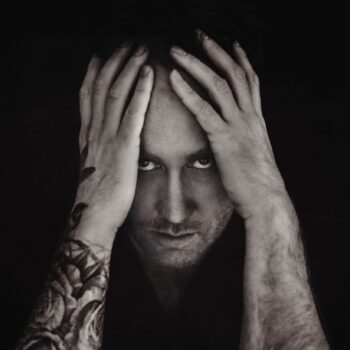
The two immediately hit the ground running and recorded a six song EP which was released by Los Angeles based publishing house and licensing firm Riptide Music Group. This self-titled City Wolf EP gained wider distribution into the sync licensing market gaining placements with Hulu, Marvel, Activision, Netflix, Fox Sports, HBO, Taco Bell, and Amazon Prime, solidifying City Wolf’s unique hybrid rock sound as a mainstay in the music licensing market. This elevated exposure would eventually push City Wolf’s monthly Spotify listener base to over 500K, and his overall catalogue has amassed over 30 million streams.
City Wolf continues to write new music at a frenetic pace, having already released two full length albums and two EPs in 2022 totaling more than 30 new tracks. He hit the studio again in the Fall of 2022 and has already completed a new EP and full-length album slated for release in early 2023. City Wolf has also branched out to form new musical partnerships with sync licensing/publishing juggernaut Position Music, as well as Silverside Music Group, Koze Music, NorthStar Media, and Lava Publishing.
Listen to City Wolf on Spotify
Comments Off on City Wolf